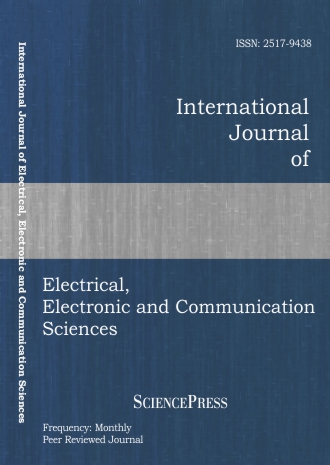
Scholarly
Volume:10, Issue: 1, 2016 Page No: 73 - 80
International Journal of Electrical, Electronic and Communication Sciences
ISSN: 2517-9438
1443 Downloads
Performance Analysis of Modified Solar Water Heating System for Climatic Condition of Allahabad, India
Solar water heating is a thermodynamic process ofheating water using sunlight with the help of solar water heater. Thus,
solar water heater is a device used to harness solar energy. In this
paper, a modified solar water heating system (MSWHS) has been
proposed over flat plate collector (FPC) and Evacuated tube collector
(ETC). The modifications include selection of materials other than
glass, and glass wool which are conventionally used for fabricating
FPC and ETC. Some modifications in design have also been
proposed. Its collector is made of double layer of semi-cylindrical
acrylic tubes and fibre reinforced plastic (FRP) insulation base. Water
tank is made of double layer of acrylic sheet except base and north
wall. FRP is used in base and north wall of the water tank. A concept
of equivalent thickness has been utilised for calculating the
dimensions of collector plate, acrylic tube and tank. A thermal model for the proposed design of MSWHS is developed
and simulation is carried out on MATLAB for the capacity of 200L
MSWHS having collector area of 1.6 m2, length of acrylic tubes of
2m at an inclination angle 25° which is taken nearly equal to the
latitude of the given location. Latitude of Allahabad is 24.45° N. The
results show that the maximum temperature of water in tank and tube
has been found to be 71.2°C and 73.3°C at 17:00hr and 16:00hr
respectively in March for the climatic data of Allahabad. Theoretical performance analysis has been carried out by varying
number of tubes of collector, the tank capacity and climatic data for
given months of winter and summer.
Authors:
References:
[1] H.D. Ammari, Y.L. Nimir, “Experimental and theoretical evaluation of